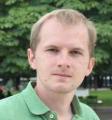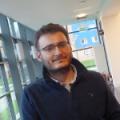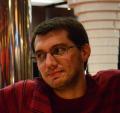In 2018, we have a number of competitions ranging from different types of optimization problems to games and industrial problems. If you are interested in one or the other competition, please follow the links to their respective web pages (see list below).
| Title | Organizers |
|---|---|
| Black Box Optimization Competition (BBComp) |
|
| Competition on Niching Methods for Multimodal Optimization |
|
| General Video Game AI Competition |
|
| Internet of Things: Online Anomaly Detection for Drinking Water Quality |
|
| Virtual Creatures Competition |
|
Black Box Optimization Competition (BBComp)
Description:
The Black Box Optimization Competition is the first competition platform in the continuous domain where test problems are truly black boxes to participants. The only information known to optimizer and participant is the dimension of the problem, bounds on all variables, and a budget of black box queries. The competition covers single- and multi-objective optimization.
We will use the exact same format as last year. We have five competition tracks. They will open on January first and close on June 30, midnight, UTC.
Submission deadline:
June 30, 2018Official webpage:
http://bbcomp.ini.rub.deOrganizers:
Ilya Loshchilov
Ilya Loshchilov is a research scientist in the Research Group on Learning, Optimization, and Automated Algorithm Design at University of Freiburg. He holds a PhD from INRIA and University of Paris Sud. His research interests include stochastic black-box optimization and machine learning.
Tobias Glasmachers
Tobias Glasmachers is a junior professor at Ruhr-University Bochum, Germany. He received his diploma (2004) and his doctorate degree (2008) from the Mathematics department of the Ruhr-University. Then he joined the swiss AI lab IDSIA for two years as a post-doc and then returned to Bochum in 2012. His research is located in the areas of supervised machine learning and optimization in continuous spaces, in particular with evolution strategies. His work on randomized search heuristics is focused on natural evolution strategies (NES) as well as on multi-objective optimization.
Competition on Niching Methods for Multimodal Optimization
Description:
The aim of the competition is to provide a common platform that encourages fair and easy comparisons across different niching algorithms. The competition allows participants to run their own niching algorithms on 20 benchmark multimodal functions with different characteristics and levels of difficulty. Researchers are welcome to evaluate their niching algorithms using this benchmark suite, and report the results by submitting a paper to the main tracks of GECCO 2018 (i.e., submitting via the online submission system of GECCO 2018).
Submission deadline:
June 30, 2018Official webpage:
http://www.epitropakis.co.uk/gecco2018/Organizers:
Michael Epitropakis
Michael G. Epitropakis received his B.S., M.S., and Ph.D. degrees from the Department of Mathematics, University of Patras, Patras, Greece. Currently, he is a Lecturer in Foundations of Data Science at the Data Science Institute and the Department of Management Science, in Lancaster University, Lancaster, UK. His current research interests include operations research, computational intelligence, evolutionary computation, swarm intelligence, machine learning and search-based software engineering. He has published more than 30 journal and conference papers. He is an active researcher on Multimodal Optimization, co-organizing series of workshops, special sessions, and competitions on Niching Methods for Multimodal Optimization in top tier Evolutionary Computation conferences. He is one of the founders and currently chairing the IEEE CIS Task Force on Multi-modal Optimization. He is an active member of the IEEE Computational Intelligence Society and the ACM SIGEVO.
Mike Preuss
Mike Preuss is Research Associate at ERCIS, University of Muenster, Germany. Previously, he was with the Chair of Algorithm Engineering at TU Dortmund, Germany, where he received his PhD in 2013. His research interests focus on the field of evolutionary algorithms for real-valued problems, namely on multimodal and multiobjective optimization. He is also active in computational intelligence methods for computer games, especially in procedural content generation (PGC) and realtime strategy games (RTS).
Xiaodong Li
Xiaodong Li received his B.Sc. degree from Xidian University, Xi'an, China, and Ph.D. degree in information science from University of Otago, Dunedin, New Zealand, respectively. Currently, he is a full professor at the School of Science (Computer Science and Software Engineering), RMIT University, Melbourne, Australia. His research interests include evolutionary computation, neural networks, complex systems, multiobjective optimization, and swarm intelligence. He serves as an Associate Editor of the IEEE Transactions on Evolutionary Computation, Swarm Intelligence (Springer), and International Journal of Swarm Intelligence Research. He is a founding member of IEEE CIS Task Force on Swarm Intelligence, a Vice-chair of IEEE CIS Task Force of Multi-Modal Optimization, and a former Chair of IEEE CIS Task Force on Large Scale Global Optimization. He was the General Chair of SEAL'08, a Program Co-Chair AI'09, and a Program Co-Chair for IEEE CEC’2012. He is the recipient of 2013 ACM SIGEVO Impact Award and 2017 IEEE CIS "IEEE Transactions on Evolutionary Computation Outstanding Paper Award".
Andries Engelbrecht
Andries Engelbrecht received the Masters and PhD degrees in Computer Science from the University of Stellenbosch, South Africa, in 1994 and 1999 respectively. He is Professor in Computer Science at the University of Pretoria, and serves as Head of the department. He holds the position of South African Research Chair in Artificial Intelligence, and leads the Computational Intelligence Research Group. His research interests include swarm intelligence, evolutionary computation, neural networks, artificial immune systems, and the application of these paradigms to data mining, games, bioinformatics, finance, and difficult optimization problems. He has published over 300 papers in these fields and is author of two books, Computational Intelligence: An Introduction and Fundamentals of Computational Swarm Intelligence.
General Video Game AI Competition
Description:
The GVG-AI Competition explores the problems within general video game playing. How would you create a level generator that can generate a level for any given game? How could you program an AI that creates new rules for existing games or entirely new games altogether?
The level generation track explores the ability of level generators to generalize and work on multiple games described in Video Game Description Language (VGDL). Competitors submit level generators that are tasked to generate levels for any set of game rules. Level generators will be given a certain amount of time to generate the levels before the final evaluation.
The rule generation track explores the ability to generate game rules and winning conditions for a fixed level of a game described in Video Game Description Language (VGDL). Rule generators will be given a certain amount of time to generate the rules before the final evaluation.
Submission deadline:
June 25, 2018Official webpage:
http://www.gvgai.netOrganizers:
Diego Perez-Liebana
Diego Perez-Liebana (diego.perez@qmul.ac.uk) is a Lecturer in Computer Games and Artificial Intelligence at Queen Mary University of London (UK). He achieved a PhD in Computer Science at the University of Essex (2015). He has published in the domain of Game AI, with interests on Reinforcement Learning and Evolutionary Computation. He organized several Game AI competitions, such as the Physical Traveling Salesman Problem and the General Video Game AI competitions, held in IEEE and ACM conferences. He has programming experience in the video games industry with titles published for game consoles and PC.
Julian Togelius
Julian Togelius is an Associate Professor in the Department of Computer Science and Engineering at New York University, and co-director of the NYU Game Innovation Lab. He works on all aspects of computational intelligence and games and on selected topics in evolutionary computation and evolutionary reinforcement learning. His current main research directions involve search-based procedural content generation in games, game adaptation through player modelling, automatic game design, and fair and relevant benchmarking of game AI through competitions. He is an author of a recent textbook on Procedural Content Generation in Games and an upcoming textbook on Artificial Intelligence and Games. Togelius holds a BA from Lund University, an MSc from the University of Sussex, and a PhD from the University of Essex.
Simon M. Lucas
Ahmed Khalifa
Michael C. Green
Michael is a Ph.D candidate in Artificial Intelligence studying under Julian Togelius at NYU. He graduated with a degree in Computer Science and Business (BS) and a degree in Classical Civilizations (BA) from Lehigh University in 2016. He is currently working on projects involved in procedural content generation using open data, player modelling, evolution and genetic programming, Monte Carlo Tree Search, and automatic game generation. His interests also include education and how it could be applied to video games.
Internet of Things: Online Anomaly Detection for Drinking Water Quality
Description:
For the 7th time in GECCO history, the SPOTSeven Lab is hosting an industrial challange in cooperation with various industry partners. This years challange, based on the 2017 challenge, is held in cooperation with "Thüringer Fernwasserversorgung" which provides their real-world data set. The task of this years competition is to develop an anomaly detection algorithm for the water- and environmental data set. Early identification of anomalies in water quality data is a challenging task. It is important to identify true undesirable variations in the water quality. At the same time, false alarm rates have to be very low.
Additionally to the competition, for the first time in GECCO history we are now able to provide the opportunity for all participants to submit 2-page algorithm descriptions for the GECCO Companion. Thus, it is now possible to create publications in a similar procedure to the Late Breaking Abstracts (LBAs) directly through competition participation!
Competition Opens: End of January/Start of February 2018
Short Paper due: 27 March 2018
Final Submission: 30 June 2018
Accepted Competition Entry Abstracts
- Online Anomaly Detection for Drinking Water Quality Using a Multi-objective Machine Learning Approach (Victor Henrique Alves Ribeiro and Gilberto Reynoso Meza from the Pontifical Catholic University of Parana)
- Anomaly Detection for Drinking Water Quality via Deep BiLSTM Ensemble (Xingguo Chen, Fan Feng, Jikai Wu, and Wenyu Liu from the Nanjing University of Posts and Telecommunications and Nanjing University)
- Automatic vs. Manual Feature Engineering for Anomaly Detection of Drinking-Water Quality (Valerie Aenne Nicola Fehst from idatase GmbH)
Submission deadline:
June 30, 2018Official webpage:
http://www.spotseven.de/gecco/gecco-challenge/Organizers:
Frederik Rehbach
Frederik is a Ph.D. student in the SPOTSeven Lab at CUAS (Cologne University of Applied Sciences). After earning his master's degree in Automation & IT at CUAS, he started working in the research project OWOS (Open Water Open Source). The project concentrates on improving and ensuring drinking water quality by online monitoring and event detection.
Margarita Rebolledo
M. Eng. Margarita Rebolledo is a research associate at the CUAS and works in the SpotSeven Team since 2014.
She earned her bachelor´s degree in Colombia in Electronic engineering, continued her studies in the master program Automation & IT at TH Köln and graduated in 2014. She is doing her PhD thesis in cooperation with Vrije Universiteit Amsterdam.
Her research interest include design of experiments, Bayesian data modelling, data analysis, and optimization.
Steffen Moritz
Steffen Moritz is a Research Associate at Cologne University of Applied Sciences. Before joining CUAS in 2016 he was working three years in R&D at Bosch Thermotechnology. Steffen earned his master’s degree in business information systems at TH Mittelhessen in Gießen. Steffen's research focuses on the application of ML algorithms in industrial sensor environments. He is also very active in the fields of Time Series Analysis and Imputation / Missing Data Treatment.
Sowmya Chandrasekaran
M. Eng. Sowmya Chandrasekaran is a research associate at TH Köln, Germany. She is working at the research group SPOTSeven Lab. Her research interest includes: Computational Intelligence, Multivariate Anomaly Detection in Sensor Data, Performance Analysis Frameworks, Data Mining/ Machine Learning, Process Mining, Deep Learning and Internet of Things.
Thomas Bartz-Beielstein
- Academic Background: Ph.D. (Dr. rer. nat.), TU Dortmund University, 2005, Computer Science.
- Professional Experience: Shareholder, Bartz & Bartz GmbH, Germany, 2014 – Present; Speaker, Research Center Computational Intelligence plus, Germany, 2012 – Present; Professor, Applied Mathematics, TH Köln, Germany, 2006 – Present.
- Professional Interest: Computational Intelligence; Simulation; Optimization; Statistical Analysis; Applied Mathematics.
- ACM Activities: Organizer of the GECCO Industrial Challenge, SIGEVO, 2011 – Present; Event Chair, Evolutionary Computation in Practice Track, SIGEVO, 2008 – Present; Tutorials Evolutionary Computation in Practice, SIGEVO, 2005 – 2013; GECCO Program Committee Member, Session Chair, SIGEVO, 2004 – Present.
- Membership and Offices in Related Organizations: Program Chair, International Conference Parallel Problem Solving from Nature, Jozef Stefan Institute, Slovenia, 2014; Program Chair, International Workshop on Hybrid Metaheuristics, TU Dortmund University, 2006; Member, Special Interest Group Computational Intelligence, VDI/VDE-Gesellschaft für Mess- und Automatisierungstechnik, 2008 – Present.
- Awards Received: Innovation Partner, State of North Rhine-Westphalia, Germany, 2013; One of the top 20 researchers in applied science by the Ministry of Innovation, Science and Research of the State of North Rhine-Westphalia, 2017.
Virtual Creatures Competition
Description:
The Virtual Creatures Competition will be held in the competition session at the Genetic and Evolutionary Computation Conference. The contest's purpose is to highlight progress in virtual creatures research and showcase evolutionary computation's ability to craft interesting well-adapted creatures with evolved morphologies and controllers. Video entries demonstrating evolved virtual creatures will be judged by technical achievement, aesthetic appeal, innovation, and perceptual animacy (perceived aliveness).
Submission deadline: June 22, 2018
Notification of Finalists: July 14, 2018
Submission deadline:
June 22, 2018Official webpage:
https://virtualcreatures.github.io/vc2018/Organizers:
Sam Kriegman
Nick Cheney
Nick Cheney is a Visiting Assistant Professor of Computer Science at the University of Wyoming, where he co-directs the Evolving Artificial Intelligence Lab with Jeff Clune. He earned a PhD in Computational Biology from Cornell University, where he was advised by Hod Lipson and Steven Strogatz. Nick has held many visiting and affiliated researcher positions, including with the Vermont Complex Systems Center, Columbia Creative Machines Lab, Santa Fe Institute, and NASA Ames Research Center. Nick's research focuses on bio-inspired optimization of embodied artificial intelligence — working at the interface of evolutionary optimization, development, and reinforcement learning. Nick is also passionate about scientific visualization and communication, and videos of his research on evolved soft robots have won prizes at GECCO, AAAI, IJCAI, and ALIFE conferences. His work has been covered by popular media outlets, such as NBC, Popular Science, and Discover Magazine, and featured in a TEDx talk.
Sebastian Risi
Sebastian Risi is an Associate Professor at the IT University of Copenhagen where he is part of the Center for Computer Games Research and the Robotics, Evolution and Art Lab (REAL). His interests include computational intelligence in games, neuroevolution, evolutionary robotics and human computation. Risi completed his PhD in computer science from the University of Central Florida. He has won several best paper awards at GECCO, EvoMusArt, IJCNN, and the Continual Learning Workshop at NIPS for his work on adaptive systems, the HyperNEAT algorithm for evolving complex artificial neural networks, and music generation.
Joel Lehman
Joel Lehman is an assistant professor at the IT University in
Copenhagen, Denmark. He recieved his bachelor's degree from the Ohio
State University in 2007, and his Ph.D. from the University of Central
Florida in 2012. He is co-author of the popular science book "Why
Greatness Cannot be Planned: The Myth of the Objective," and is an
inventor of the novelty search algorithm. Other research interests
include neuroevolution, artificial life, and open-ended evolution.














